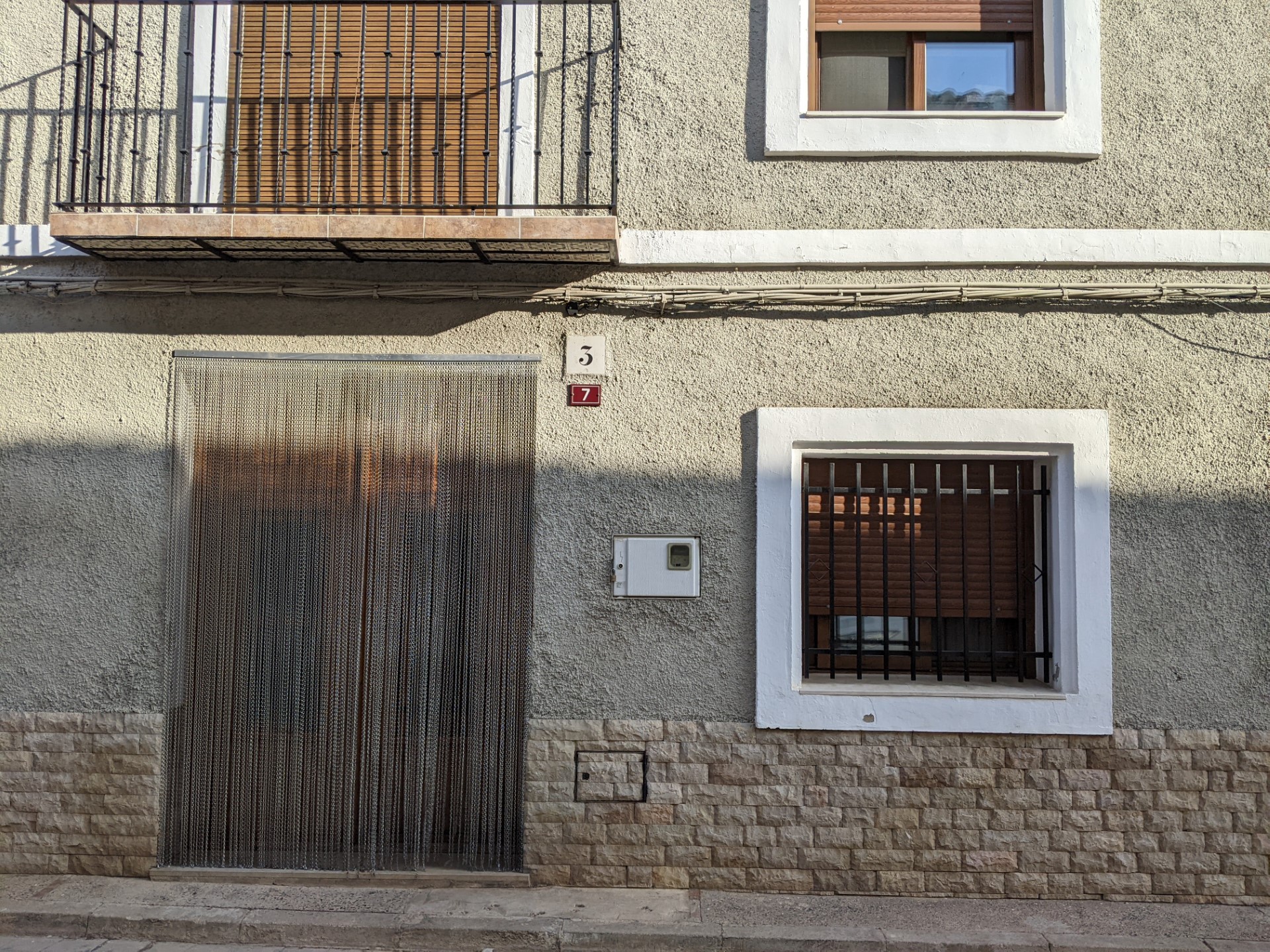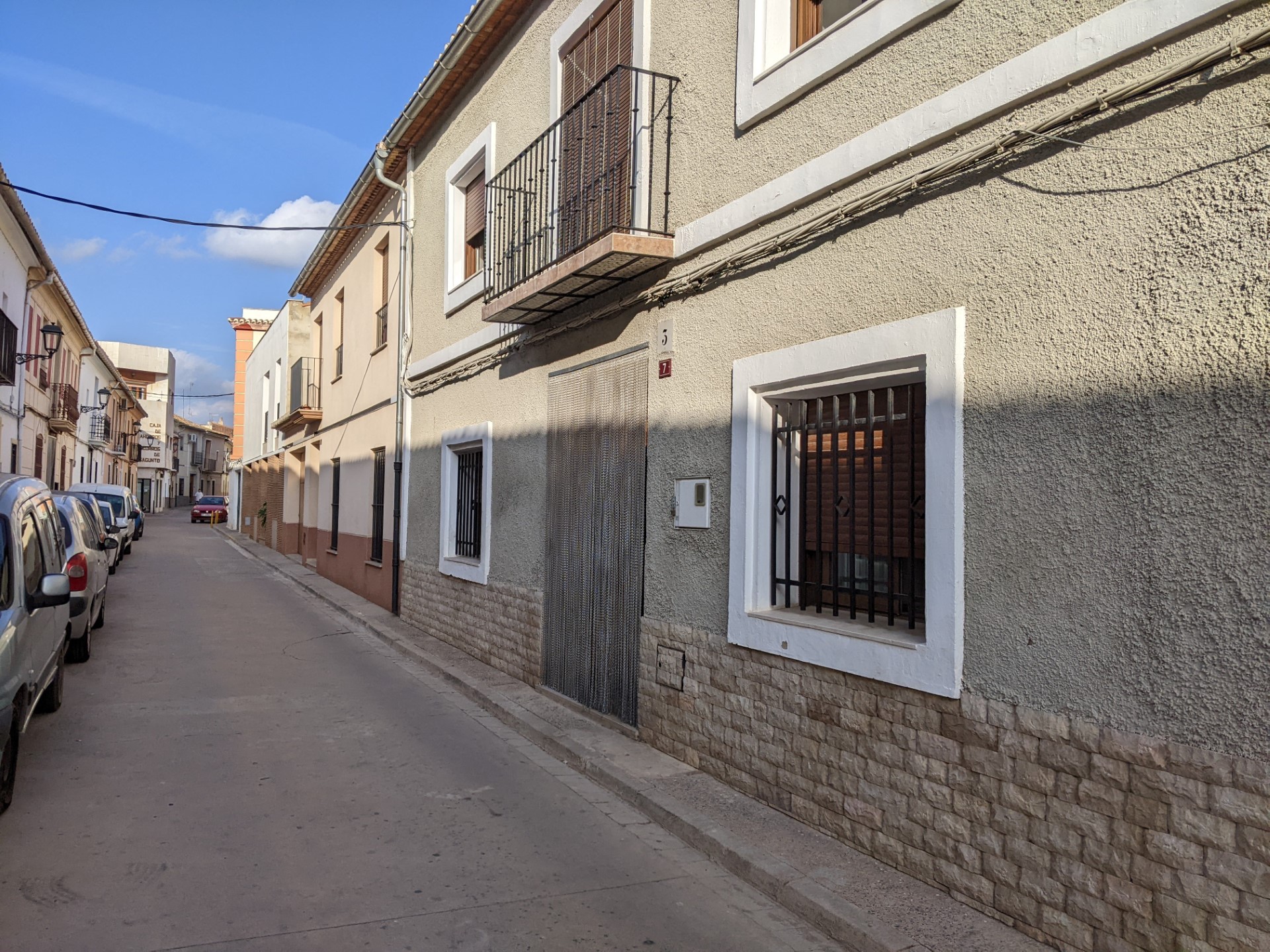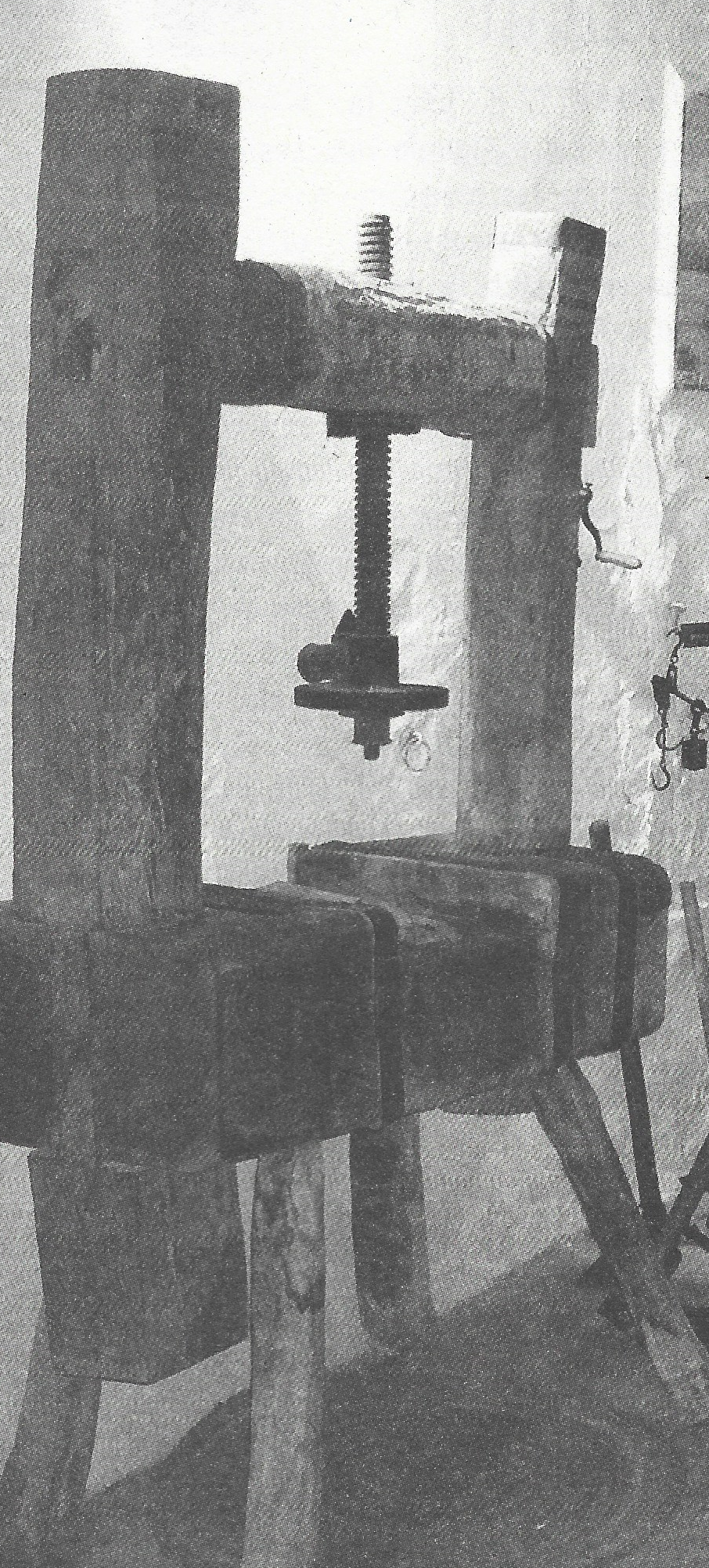Houses and Streets
AO111
Noodles (5, Ramón y Cajal Street)
Algímia’s second industrial experience started around 1840 by an entrepreneurial woman, Rosa Güemes Marín, with a noodle factory, the machine of which is preserved by her successors.
Although the 19th century the Valencia area did not know rapid urbanization, nor a spectacular growth of the industrial system, nor a significant loss of the economic weight of agriculture; a concrete development, based on the formation of a dynamic agriculture and the development of a peculiar industrial process were initiated.
Clearly initiated in the 60s of the 19th century, the Valencian industry, born from its dynamic agriculture, was sustained by agricultural demand and by an abundant supply of experienced but relatively cheap labor.
Previously, agriculture and public works, mainly the railway (designed to bring Andalusian and Castilian cereals to the Mediterranean coast), focused the investments. At the same time as this integration of the territory took place through the communication infrastructures (railway, road, port); the increase in income generated by agricultural commercialization brought with it the need for industries that favored agricultural growth: flour mills, wineries and textiles were the first.
And within the first, flour mills, and specifically the production of noodles, there were many possibilities for progress: the cost of assembly was relatively cheap and the product offered numerous advantages: high nutritional value and easy transport and preservation.
Algímia thus had an early industry (about 20 years before the general trend), which covered a demand not only local but also from neighboring towns.
In this house was installed this activity that will last until the 1950s, with the couple José Carreres Bayo and Juana Condomina Pérez. At that time, not only the owners, but any neighbor of the town and the surrounding area (even Sagunto or Alboraia) could come and make them.



